-
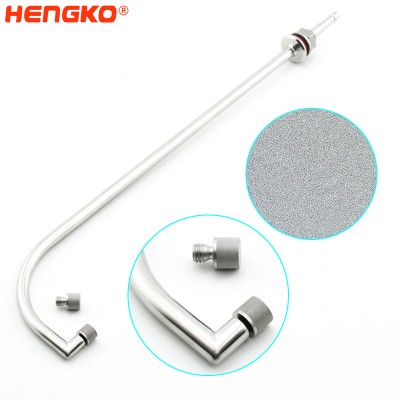
Stainless Steel 316 Micro Spargers and Filter in Bioreactors and Fermentors
Product Describe The function of the bioreactor is to provide a suitable environment in which an organism can efficiently produce a target product. * Cell b...
View Detail -
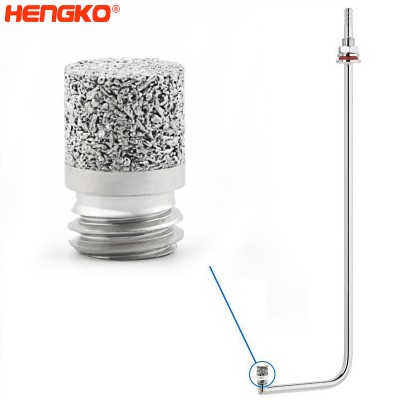
In-tank porous metal spargers or multiple sparger assembly for a large tank, increase g...
Attaches to the tip of the sparger tube, this 316L stainless steel sintered tip is available in a variety of pore sizes. The 5 10 15 50 100 pore frit is the ...
View Detail -
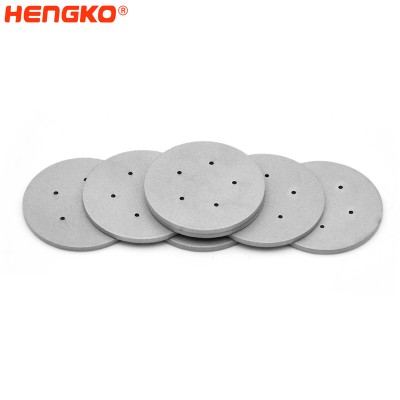
Single Use Bioreactor diffuser sparger for cell culture
In the initial stage of upstream processing in bioprocessing, fermentation is commonly used. Fermentation is defined as the chemical changes caused by microo...
View Detail -
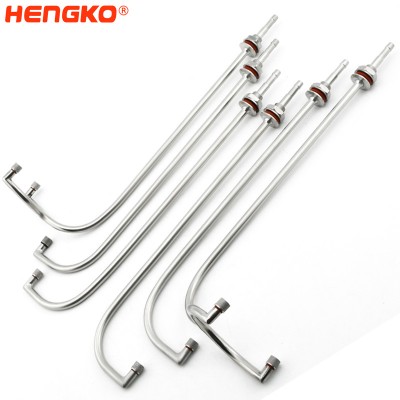
multi – bioreactor sparger for the fermenter sartorius
The Stainless Steel Fermenter|Bioreactor for Your Laboratory A bioreactor is a type of fermentation vessel that is used for the production of various chemica...
View Detail -
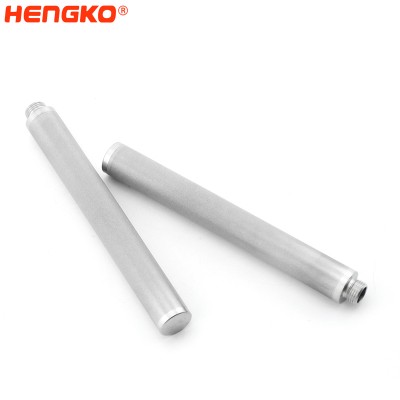
HENGKO OEM Sintered Steel Filter and Sparger
OEM Sintered stainless steel diffuser / sparger, for aerating in liquid. HENGKO’s sintered sparger are unsurpassed in strength, precision and uniformity. The...
View Detail -
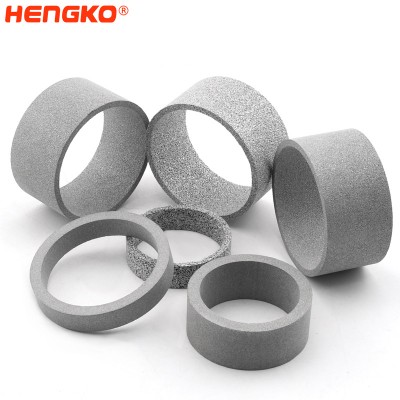
Stainless Steel Sintered Porous Metal Filter Tubes Porosity Down to 0.2 µm – In F...
Pore size:0.2-100microns Materials: SS Metal Porosity:30%~45% Working Pressure:3MPa Operating Temperature:600℃ Applications for sintered porous metal ...
View Detail -
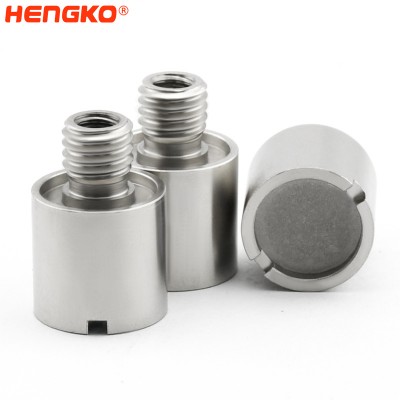
Sintered Microsparger in Bioreactor System for Green chemistry industry
The importance of aeration and gas dispersion to achieve good oxygen mass transfer cannot be understated. This is at the heart of the ability of microbial s...
View Detail -
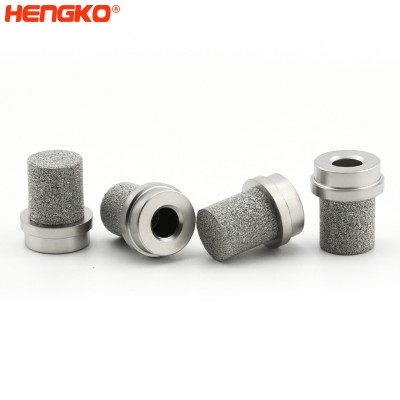
Replacement Micro-Bubble Porous Sparger Tips for Fermentation / Bioreactor Air Aeration...
Advantages of HENGKO Porous Metal Micro Spargers Due to the low solubility of oxygen in many cell culture mediums, optimizing this critical nutrient can be ...
View Detail -
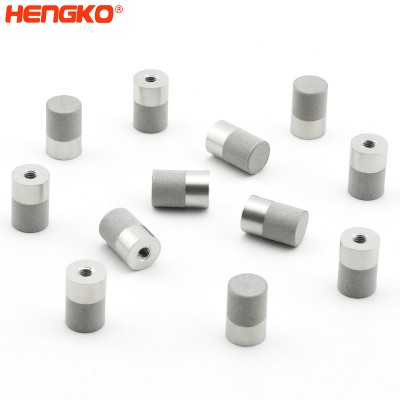
Sintered Micro Porous Sparger in Benchtop for Bioreactors and Laboratory Fermenter
Every bioreactor sparging system is designed for the introduction of oxygen to feed cell cultures. Meanwhile, the system must remove carbon dioxide to preven...
View Detail -
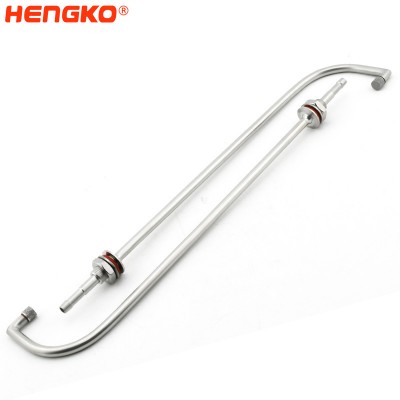
Quick Change Sparger System for Bioreactors and Fermentors Air Sparger Accessories- Mic...
Stainless steel sparger is to supply enough oxygen to the microbes in submerge culture technique for proper metabolism. Each fermentation process requires a ...
View Detail -
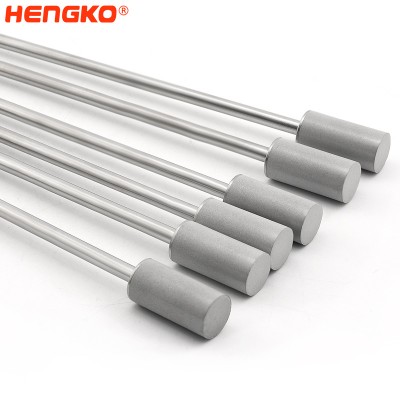
316 L Powder Stainless Steel Metal Frit Spargers Building A Stainless Steel Filtering S...
Product Description This device is particularly good for fermentations that require a large population of yeast. Pilsners (or other beers fermented at low te...
View Detail -
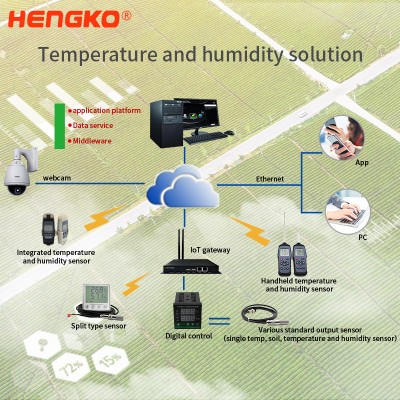
IoT Temperature and Huimidirty Sensor Monitoring for Food Quality Service Control ̵...
IoT Temperature and Huimidirty Sensor Restaurants, bars, food production and hospitality companies worldwide are responsible for executin...
View Detail -
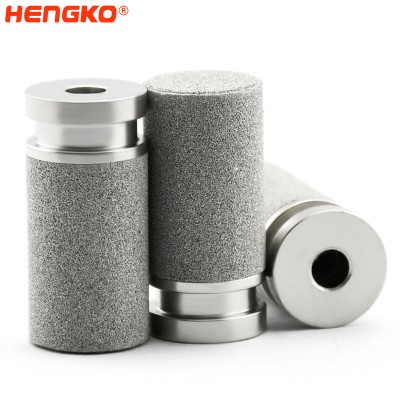
HENGKO sintered porous carbonation stone air sparger bubble diffuser nano oxygen genera...
In bioreactor systems, optimal mass transfer of gases like oxygen or carbon dioxide is difficult to accomplish. Oxygen, in particular, is poorly soluble in w...
View Detail -
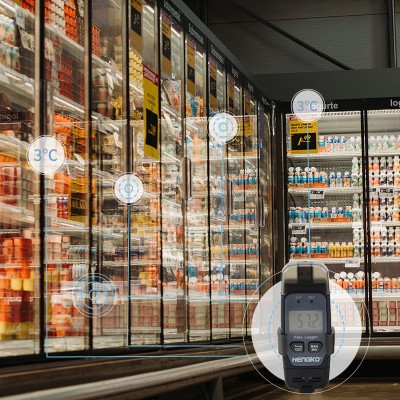
Remote Temperature and Relative Iot humidity monitoring system for Food and Beverage Co...
Temperature and Humidity monitoring is an ideal solution for industries/businesses where temperature and humidity maintenance is of utmost importance. With t...
View Detail -
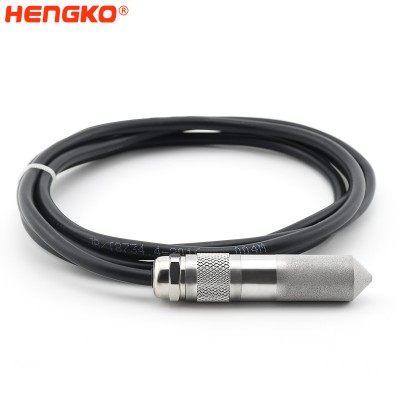
Wholesale custom dustproof waterproof RHT20 digital high temperature and relative humid...
HENGKO temperature and relative humidity sensor based on RHT-H series sensor which gives good accuracy and covers a great range of temperature and humidity. ...
View Detail -
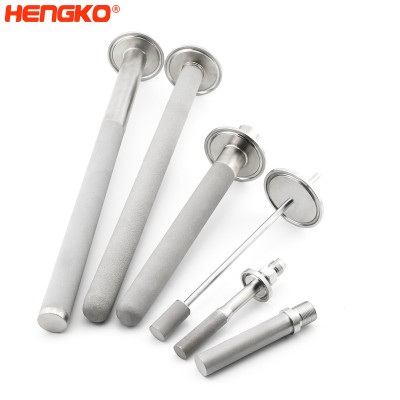
Sintered Sparger Tube with Porous Metal Stainless Steel Tank and In-line Spargers Used ...
Introducing the exceptional HENGKO sintered spargers, the ultimate solution to introducing gases into liquids. This innovative product utilizes thousands of...
View Detail -
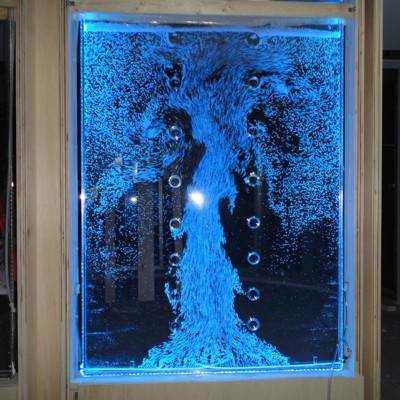
HENGKO micron small bubble air sparger oxygenation carbanation stone used in acrylic wa...
Product Describe HENGKO air sparger bubble stone is stainless steel 316/316L, food grade, with a beautiful appearance, suitable for hotels, fine dining and o...
View Detail -
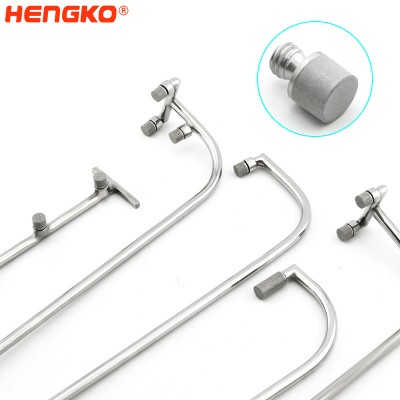
Sintered Sparger Stainless Steel Material Quick Change for Bioreactor Systems
In bioreactor systems, optimal mass transfer of gases like oxygen or carbon dioxide is difficult to accomplish. Oxygen, in particular, is poorly soluble in w...
View Detail -
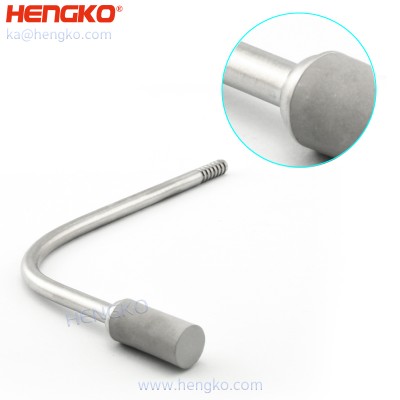
Aeration Stone 20um Sintered Stainless Steel 316L Micro sparger Diffusion Stone Supplier
Hydrogen water is clean, powerful, and with hydron. It helps to purify the blood and gets blood moving. It can prevent many kinds of diseases and improve peo...
View Detail -
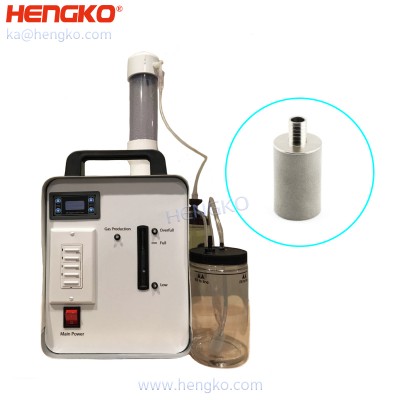
hydrogen water machines accessories food grade sintered porous stainless steel filter h...
Sintered air stone diffusers are often used for porous gas injecting. They have different pore sizes(0.5um to 100um) allowing tiny bubbles to flow. They can ...
View Detail
Types of Food and Beverage Filtration Elements
The food and beverage industry relies heavily on filtration to ensure product quality, safety, and shelf life. Here are some of the most common types of filtration elements used in this industry:
1. Depth filters:
* These filters consist of a thick, porous media that traps particles as they pass through.
* Common examples include cartridge filters, bag filters, and precoat filters.
* Cartridge filters: These are disposable filters made of various materials like cellulose, polypropylene, or glass fiber. They are available in various pore sizes to remove particles of different sizes.
* Bag filters: These are reusable filters made of fabric or mesh. They are typically used for larger volume filtration and can be cleaned and reused multiple times.
* Precoat filters: These filters use a layer of diatomaceous earth (DE) or another filter aid on top of a support layer to achieve finer filtration.
2. Membrane filters:
* These filters use a thin, selectively permeable membrane to separate particles from liquids.
* They are available in different pore sizes and can be used to remove particles, bacteria, viruses, and even dissolved solids.
* Microfiltration (MF): This type of membrane filtration removes particles larger than 0.1 microns, such as bacteria, yeast, and parasites.
* Ultrafiltration (UF): This type of membrane filtration removes particles larger than 0.001 microns, such as viruses, proteins, and large molecules.
* Nanofiltration (NF): This type of membrane filtration removes particles larger than 0.0001 microns, such as multivalent ions, organic molecules, and some viruses.
* Reverse osmosis (RO): This type of membrane filtration removes almost all dissolved solids and impurities from water, leaving behind only pure water molecules.
3. Other filtration elements:
* Clarification filters: These filters are used to remove haze or cloudiness from liquids. They may use depth filtration, membrane filtration, or other methods.
* Adsorption filters:
These filters use a media that traps contaminants through adsorption, a physical process where molecules adhere to the surface of the media. Activated carbon is a common example of an adsorbent used in filtration.
* Centrifuges:
These are not technically filters, but they can be used to separate liquids from solids or immiscible liquids by using centrifugal force.
The choice of filtration element depends on the specific application and the desired outcome. Factors to consider include the type of contaminant to be removed, the size of the particles, the volume of liquid to be filtered, and the desired flow rate.
Sintered Stainless Steel Filter Application for Beer Filtration System ?
While sintered stainless steel filters are not generally recommended for beer filtration due to the reasons mentioned earlier, there are some limited applications where they might be used:
* Pre-filtration for cold beer:
In cold beer filtration systems, they can be used as a pre-filter to remove large particles like yeast and hop residue before the beer goes through finer filtration steps with depth filters or membrane filters. However, it's important to ensure the chosen sintered filter is made from high-quality, food-grade stainless steel (like 316L) that is resistant to corrosion from the slightly acidic beer. Additionally, thorough cleaning and sanitization procedures are crucial to prevent contamination risks.
* Coarse beer clarification:
In some small-scale brewing operations, sintered stainless steel filters might be used for coarse clarification of beer, removing larger particles and improving its appearance. However, this is not a common practice and other filtration methods, like depth filters or centrifuges, are generally preferred for achieving better clarity and removing finer particles.
It's important to note that even in these limited applications, using sintered stainless steel filters for beer filtration is not without risks and should be approached with caution. It's crucial to ensure the chosen filter is suitable for food contact, properly cleaned and sanitized, and not used for extended periods to minimize potential contamination risks.
Here are some alternative filtration methods commonly used in beer filtration:
* Depth filters:
These are the most common type of filter used for beer filtration, available in various configurations and pore sizes to remove yeast, haze-causing particles, and other impurities.
* Membrane filters: These can be used for finer filtration, removing bacteria and other microscopic particles.
* Centrifuges:
These use centrifugal force to separate solids from liquids, and can be used for clarification or to remove yeast.
For optimal beer filtration and to ensure product safety, consulting with a professional brewer or filtration expert is highly recommended. They can help you choose the most appropriate filtration method based on your specific needs and ensure your filtration process is safe and effective.
OEM Service
HENGKO wouldn't typically recommend our sintered metal filters for direct food and beverage filtration.
However, we can offer customization options suitable for indirect applications like:
* Pre-filtration in high-pressure systems:
We can potentially create pre-filters for high-pressure systems, protecting downstream, more sensitive filters from large debris.
* Filtration of hot liquids (with limitations):
We can withstand high temperatures, potentially making them applicable for filtering hot liquids like syrups or oils, provided certain conditions are met:* The chosen filter must be made from high-quality, food-grade stainless steel (like 316L) with corrosion resistance to the specific hot liquid.
* Stringent cleaning and sanitization procedures are necessary to minimize contamination risks.
It's crucial to emphasize that even in these limited, indirect applications, using sintered metal filters in food and beverage systems comes with risks and requires careful consideration. Consulting with a food safety expert or professional brewer is strongly advised before using them in any capacity related to food or beverage production.
HENGKO's OEM services for sintered metal filters might focus on customizing properties like:
1. Material selection:
Offering various materials besides standard stainless steel, potentially including corrosion-resistant options suitable for specific indirect applications in the food and beverage industry.
2. Pore size and filtration efficiency:
Tailoring pore size and filtration efficiency to suit the specific needs of pre-filtration or hot liquid filtration, if deemed suitable after consultation with an expert.
3. Shape and size:
Providing filters in various shapes and sizes to fit different pre-filtration or hot liquid filtration equipment, again, with expert consultation.
Remember, prioritize consulting with a food safety expert or professional brewer before considering any use of sintered metal filters in food and beverage applications.
We can assess your specific needs and recommend the safest and most effective filtration methods for your situation.
























